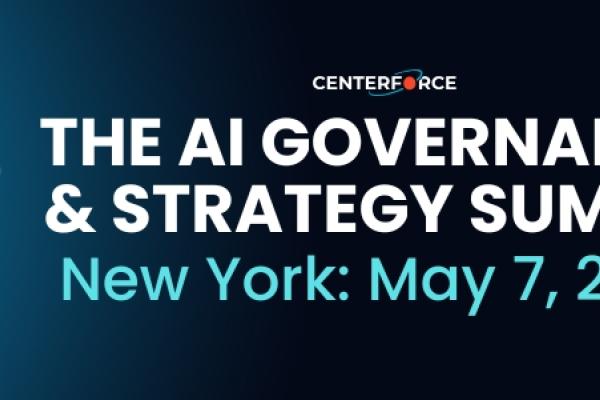Insights on AI & Emerging Technologies
267 total results. Page 1 of 11.
AI, Metaverse & Blockchain Co-Leader Danielle Bulger will be a featured speaker at the 2025 BESLA Conference, joining industry leaders for a dynamic discussion entitled, Code, Content, and Consequences: The New Challenges AI Presents in Entertainment & Advertising. This timely panel will delve into the transformative impact of artificial intelligence on the creative and advertising sectors, examining both the opportunities and risks that AI brings to the forefront.
California Governor Gavin Newsom signed Senate Bill 53, “The Transparency in Frontier Intelligence Act” (TFAIA), establishing new AI safety and transparency obligations for certain AI developers.
Partner Marylee Jenkins will speak at the 2025 WTR Live: Brand Strategy Summit USA in New York on October 22, 2025.
Partner D. Reed Freeman was quoted on how the massive amount of data artificial intelligence (AI) models need is potentially undermining one of privacy advocates’ key goals: data minimization.
A significant Patent Trial and Appeal Board (PTAB) decision authored by the US Patent and Trademark Office (USPTO) leadership, including the new USPTO Director John A. Squires, signals the importance of artificial intelligence (AI) innovations to the US economy and paves the way for patenting of AI and machine learning (ML) technologies.
Anthropic PBC entered into a proposed class-wide settlement that would resolve Bartz et al. v. Anthropic PBC, No. 3:24-cv-05417 (N.D. Cal.), a high-profile copyright infringement action challenging the company’s use of millions of books to train its Claude large language models.
Chairman Anthony Lupo and Fashion Group Co-Leader Michelle Mancino Marsh discussed the complexities and intellectual property (IP) concerns arising from the expansion of artificial intelligence (AI) in the fashion and retail industry. “AI will be a sea change not just for the fashion industry but for society as a whole,” Tony said.
The US Patent and Trademark Office (USPTO) has issued new guidance to clarify and improve the evaluation of patent eligibility for artificial intelligence (AI) and machine learning (ML) inventions in order to foster innovation and patenting of these cutting-edge technologies.
On July 31, 2025, ArentFox Schiff hosted the HGPII Annual Best Practices Forum, one of the group purchasing sector’s premier training and leadership development conferences.
The Trump Administration has proposed implementing a broad range of regulatory changes in order to promote the development of artificial intelligence (AI) in the United States.
As artificial intelligence (AI) becomes increasingly embedded in health care, from diagnostics and clinical decision support to administrative automation, health care providers are increasingly reliant on AI vendors to deliver accurate, safe, and compliant solutions, subject to applicable regulatory requirements and standards of care.
As the pace of advancements in artificial intelligence (AI) innovations continues to accelerate, companies from various technology and industry sectors are turning to ArentFox Schiff’s Patent group for guidance in protecting their intellectual property (IP) and patenting their cutting-edge AI technologies.
In Law360’s 2025 midyear report, Partner Danielle Bulger was quoted on recent, pivotal copyright rulings by US district courts, including regarding implications of the affirmative defense of fair use in the context of AI model training, and copyright litigation strategy.
In one of the first substantive decisions analyzing whether the use of copyrighted works to train large language models (LLMs) for generative artificial intelligence (AI) services is infringing or a fair use, Judge William Alsup issued a split decision in his summary judgment order. See Bartz et al. v. Anthropic PBC, No. 3:24-cv-05417 (N.D. Cal. Aug 19, 2024).
The Walt Disney Company and Universal City Studios Productions are among the latest plaintiffs to bring a lawsuit against an artificial intelligence (AI) developer.
Join ODSC and ArentFox Schiff’s Michael Scarpati, Ph.D. for a deep dive into the fascinating world of AI at Beyond Automation: Exploring Agentic AI Together.
On April 25, purchasers of Nike non-fungible tokens (NFTs) filed a class action complaint in the US District Court for the Eastern District of New York against the sportswear giant alleging that the December 2024 shutdown of RTFKT constituted a “brazen rug pull,” resulting in significant monetary losses for the plaintiffs.

Partners Matthew Berlin and Michael Fainberg of ArentFox Schiff will speak at the 2025 AI Governance & Strategy Summit – New York on May 7, 2025.
Join ArentFox Schiff Partner Danielle Bulger at the Copyright Society’s 2025 Annual Meeting on June 6, 2025.
On April 23, President Trump signed an executive order (EO) establishing an Artificial Intelligence (AI) Education Task Force to advance AI training for K-12 students, faculty, and staff in the nation’s public-school districts in an effort to provide early exposure to AI concepts and technology and develop “an AI ready workforce and the next generation of AI innovators.”
AI Industry Group Co-Leader Dan Jasnow will present at Artist and the Machine’s AI & Creativity Summit on April 24, 2025, in New York.
The protection of intellectual property (IP) is vital in the fiercely competitive artificial intelligence (AI) industry, necessitating a deep understanding of how the complex IP framework can be effectively leveraged to safeguard technological innovations in this rapidly evolving sector.
2025 will be a transformational year for the beverage and food industry, which has already been dramatically impacted by shifting market trends and profound policy changes. Here are the top five topics influencing the strategies and growth plans of beverage and food companies.
In the last year, state activism in healthcare consumer protection has surged, with new laws that heighten oversight of for-profit investors’ engagement with healthcare marketplaces and scrutinize pharmaceutical pricing practices. As part of this activism, several state legislatures have enacted laws regulating use of artificial intelligence (AI) in healthcare delivery.
President Trump’s first months in office have been busy, but, in the export control world, we have been grateful for a brief respite from the mind-bending, hundreds-of-pages-long, industry-changing rules that the US Department of Commerce’s Bureau of Industry and Security (BIS) issued during the last stretch of President Biden’s term — sometimes more than one per day!